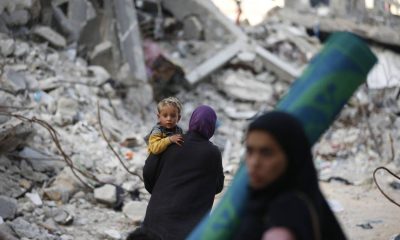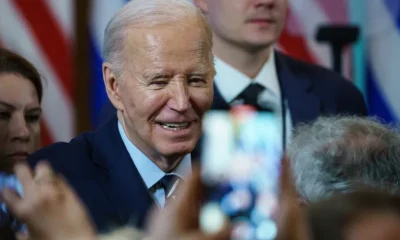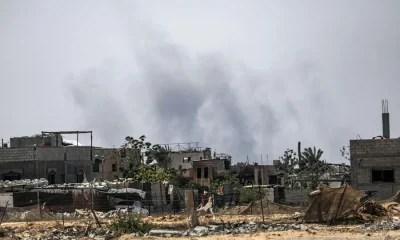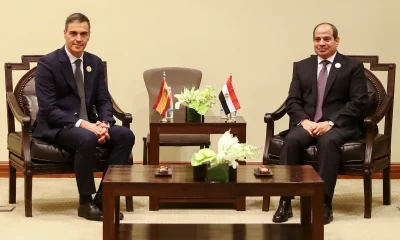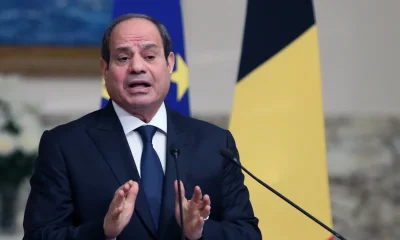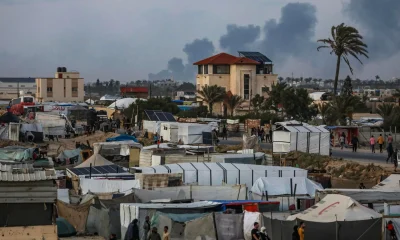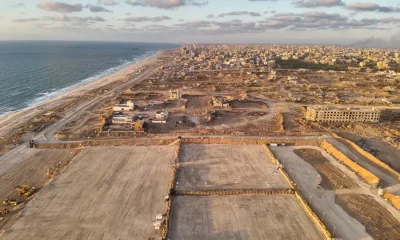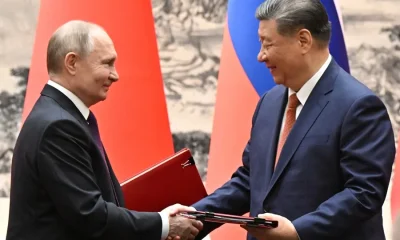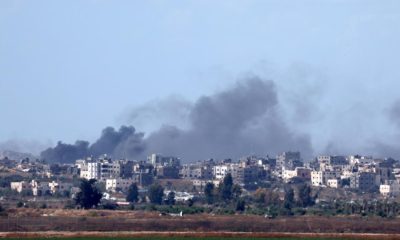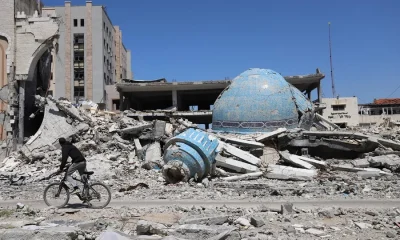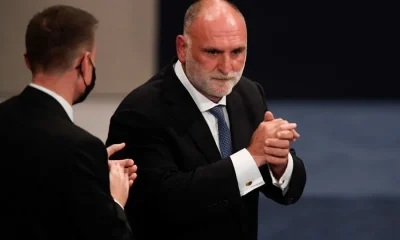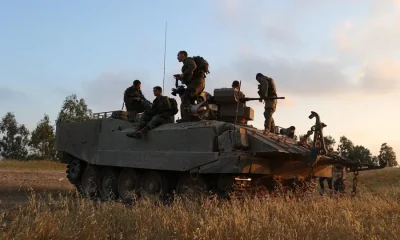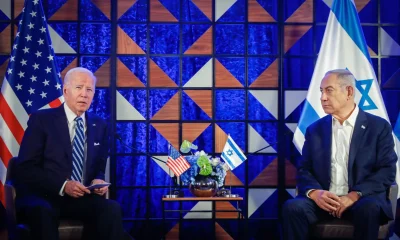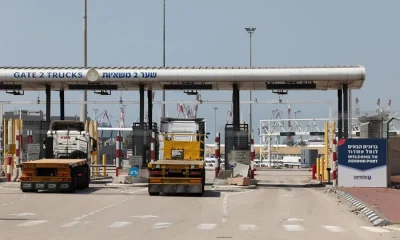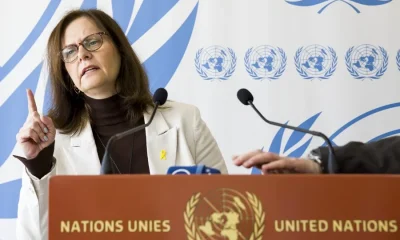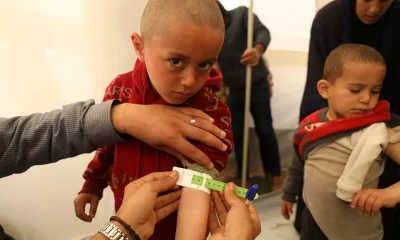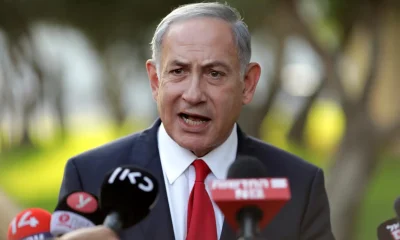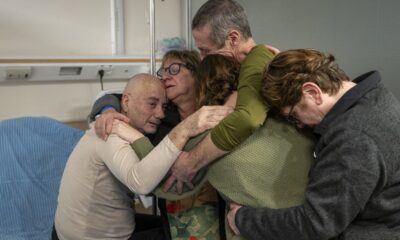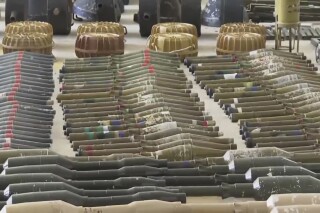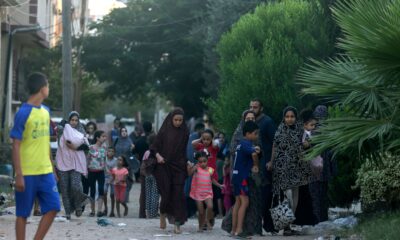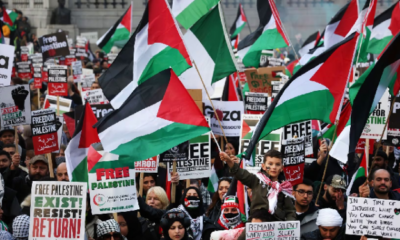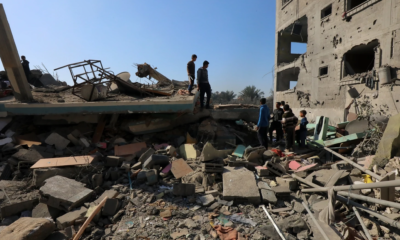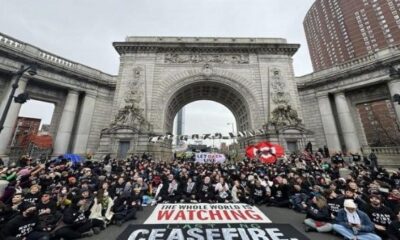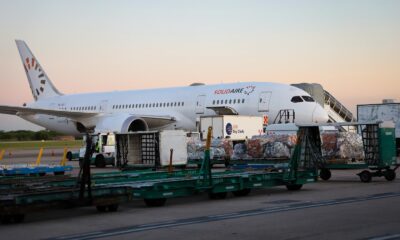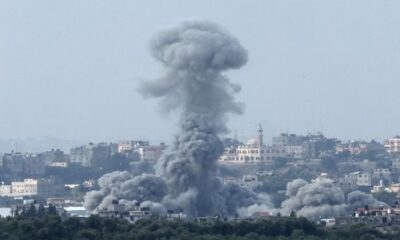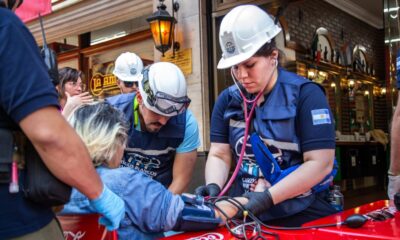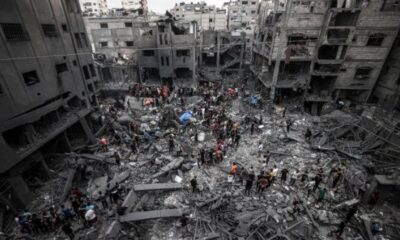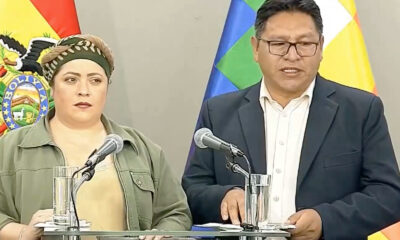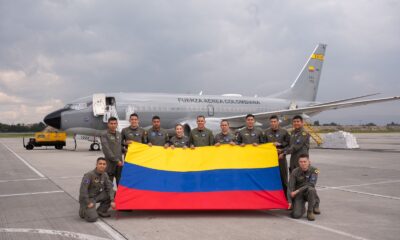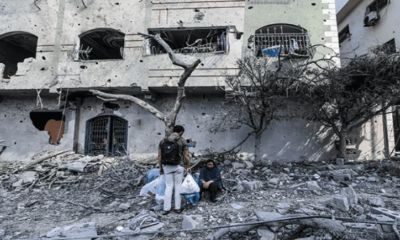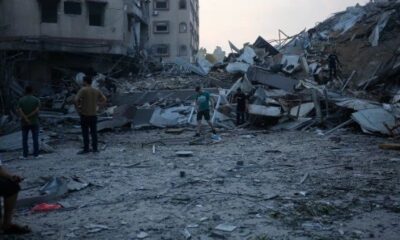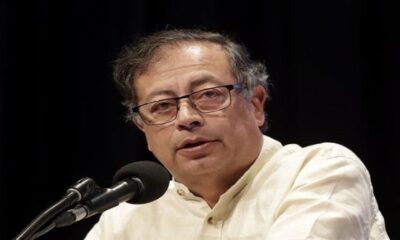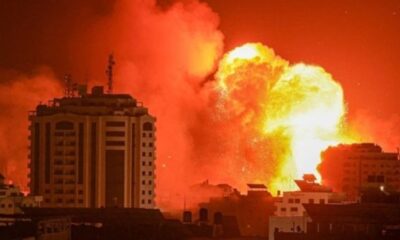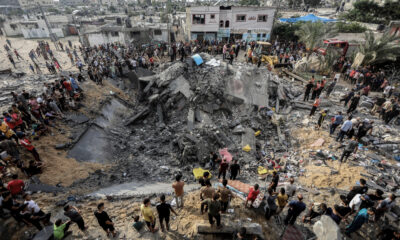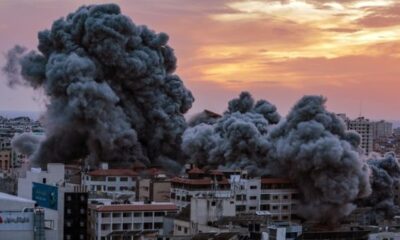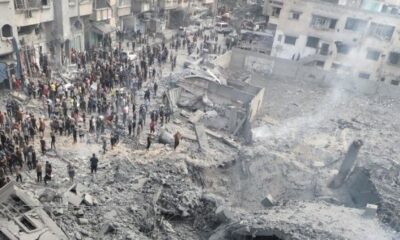International
Negotiations for the truce in Gaza will resume in Doha
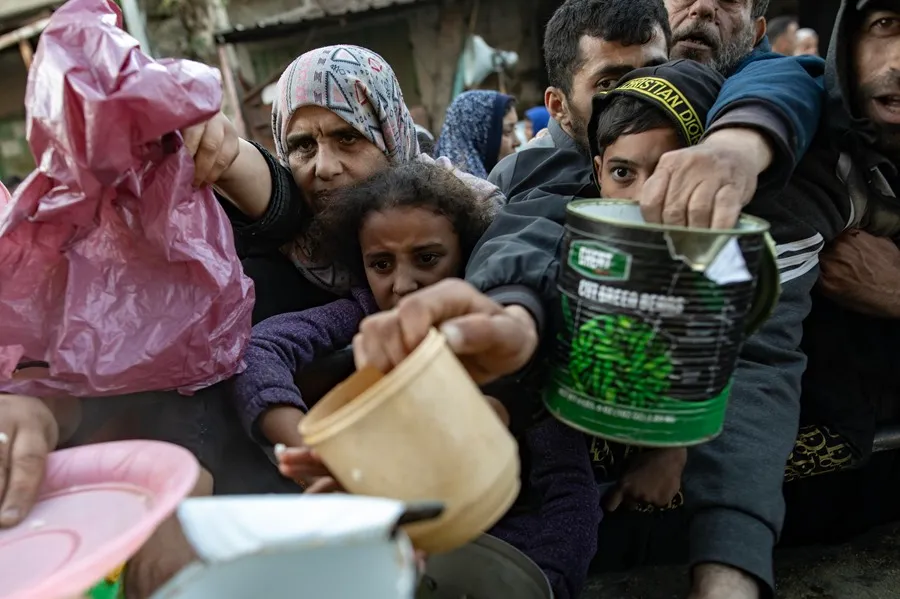
Negotiations for the truce in Gaza are scheduled to resume tomorrow, Sunday, in Doha and there will be an Israeli delegation to respond to Hamas’ updated proposal, Egyptian intelligence sources told EFE today.
The source, who asked for anonymity due to the sensitivity of this issue, assured that the new round of talks will take place in Doha and not in Cairo, home of the last consultations, and in them there will be Egyptian, Qatari leaders and a delegation of the Israeli Mossad, without the participation of the Islamist group Hamas.
So far, the Qatari government has not officially confirmed that talks will resume tomorrow in its country.
The Egyptian source close to the negotiations assured that the meeting in Doha will discuss the points of disagreement between the Palestinian and Israeli parties, but it will not be to discuss all the points included in the agreement, since some have been agreed in principle.
He stressed, always according to this source, that the Israeli objections are mainly based on his desire for Hamas to reveal the names of the hostages and the figures of the dead captives.
On the other hand, a Palestinian source in Cairo also aware of the talks pointed out to EFE that the updated draft of Hamas contemplates three phases, instead of two as pointed out the day before.
The first phase provides for an exchange in different stages and a temporary ceasefire that lasts 42 days that later, in the second phase, will become a permanent ceasefire.
In the first phase, the movement conditioned the withdrawal of Israeli forces from Al Rashid Street and from Salah al Din to allow the return of the displaced and the passage of aid to the north of the Gaza Strip, as well as guarantee freedom of movement.
Hamas also offered, according to this source since the Palestinian group has not officially confirmed this information, to release 50 Palestinian prisoners for each living Israeli female soldier, although the informant did not offer more details of the rest of the hostages.
With the start of the second phase, Hamas demands a permanent ceasefire before any exchange of soldiers.
Finally, in the third phase, the proposal includes the implementation of a comprehensive reconstruction of the Gaza Strip and the end of the siege.
The mediators will try to press for both parties to reach a ceasefire, which was expected to be achieved before the Muslim holy month of Ramadan, which began on March 11.
At least 80 civilians, mostly women and children, were killed by Israeli airstrikes in the last hours in Gaza, medical and local sources told the Palestinian agency Wafa, while the Israeli Army claimed to have killed about thirty Hamas militiamen in the strip.
Waiting for the Gaza Ministry of Health to confirm the total number of fatalities this morning, about 36 people died last night in attacks on two houses in the Nuseirat camp, in the center of the Gaza Strip, sources on the ground told the Palestinian agency.
For its part, the army said it had killed 15 alleged militiamen in Nuseirat “hidden in a sie in Hamas” during an air attack, explains a military statement, which says that the attack was led by the 215º artillery regiment “based on intelligence information.”
The same regiment, the army says, conducted a second airstrike “killing a commander of a squadron of snipers from Hamas” and another militiaman.
The rest of the civilian deaths, mostly women and children, perished in the bombing of a seven-storey residential building “that housed displaced people,” according to Wafa, near the Al Shifa hospital, in Gaza City, and in another air attack on a house on Al Jalaa Street in the same city.
In addition, five other civilians died and dozens more were injured in an airstrike against a house in the Al Tuffah neighborhood, and a similar bombing caused an undetermined number of deaths and injuries in the Al Nasr neighborhood, both in Gaza City.
In turn, Wafa reported “intense air strikes” on the city of Beit Hanoun, in the north of the Strip, with bombings that also took place against an inhabited house in Rafah, south of the enclave and where more than 1.4 million displaced people take refuge.
In the center of Gaza, Israeli soldiers of the Nahal Brigade, according to the statement, killed “about 10 armed men” on the last day; and in Jan Yunis fighter planes destroyed “a weapons depot” and attacked alleged militiamen.
After more than five months of war, 85% of the Gaza population has been displaced, and 60% of the infrastructure of the Strip, according to UN estimates, is damaged or destroyed, with malnourished babies and little medical assistance due to Israeli attacks.
A Palestinian armed with a rifle was killed this Saturday by Israeli soldiers shot in a cemetery near a Jewish settlement, within the occupied Palestinian city of Hebron, according to a military statement and a video of the event.
An attacker “opened fire on a Jewish community (colony) in the city of Hebron. The terrorist has been neutralized,” said the army, which reported that soldiers comb the area in search of other possible suspects.
The total number of fatalities increased in recent hours to 31,553 and 73,546 injured since the start of the war in the Gaza Strip on October 7, reported the Ministry of Health controlled by Hamas, after a day of intense attacks in the central area of the enclave.
The Egyptian Foreign Ministry insisted on Saturday that Israel must open all the remaining steps that are not yet operational to introduce aid to the Gaza Strip and prevent the humanitarian situation from worsening.
“Egypt continues to do everything possible to improve the access of urgent aid to Gaza through the Rafah border crossing and through aerial launches,” Foreign Affairs spokesman Ahmed Abu Zeid said in a statement.
And he asked Israel to “remove the obstacles and restrictions it imposes on the entry of aid through land border crossings, and to put the remaining steps into operation so that more aid is entered and thus prevent the humanitarian situation in Gaza from worsening.”
International
Spain’s irregular migrant population rises to 840,000, study finds

The number of migrants living in Spain without legal residency status continues to rise and has reached 840,000 people, with 91% originating from the Americas, particularly Colombia, Peru and Honduras, according to a report by the Spanish think tank Funcas (Foundation of the Savings Banks).
An estimated 17.2% of the non-EU foreign population living in Spain is in an irregular administrative situation. The estimate is based on the gap between the number of foreign residents effectively living in Spain, according to the National Statistics Institute (INE), and those who hold a residence permit, benefit from international protection, or are in the process of obtaining it.
The data, as of January 1, 2025, point to a notable and sustained increase in irregular migration since 2017, when the estimated figure stood at around 107,000 people, representing 4.2% of the non-EU population residing in Spain.
By origin, migrants from the American continent stand out, totaling around 760,000 people, or 91% of all irregular migrants. Colombians account for nearly 290,000, followed by Peruvians with almost 110,000, and Hondurans with about 90,000. Migrants from Africa (50,000), Asia (15,000) and Europe (14,000) trail far behind.
The figures predate Spain’s latest immigration regulation reform, which came into force in May 2025 and introduces measures to ease access to legal status through residency ties. According to Funcas, the reform would, in principle, tend to reduce the number of migrants in an irregular situation.
International
Historic snowstorm paralyzes Toronto after 60 centimeters of snow

Toronto, Canada’s largest city and the fourth most populous in North America, was largely paralyzed on Monday after a historic snowstorm dumped up to 60 centimeters of snow and sent temperatures plunging to -15 degrees Celsius, authorities said.
Late Sunday, as the scale of the snowfall became clear, city officials declared a climate emergency, triggering extraordinary measures including parking bans on several major streets to facilitate snow removal operations.
Toronto’s public transit authority reported that while some buses remain immobilized, subway and streetcar services are operating with relative normality, though localized disruptions may occur.
A similar situation is affecting the city’s commuter rail network, which remains operational but is experiencing significant delays on its main routes due to the severe weather conditions.
International
Venezuela frees at least 80 political prisoners, NGO says
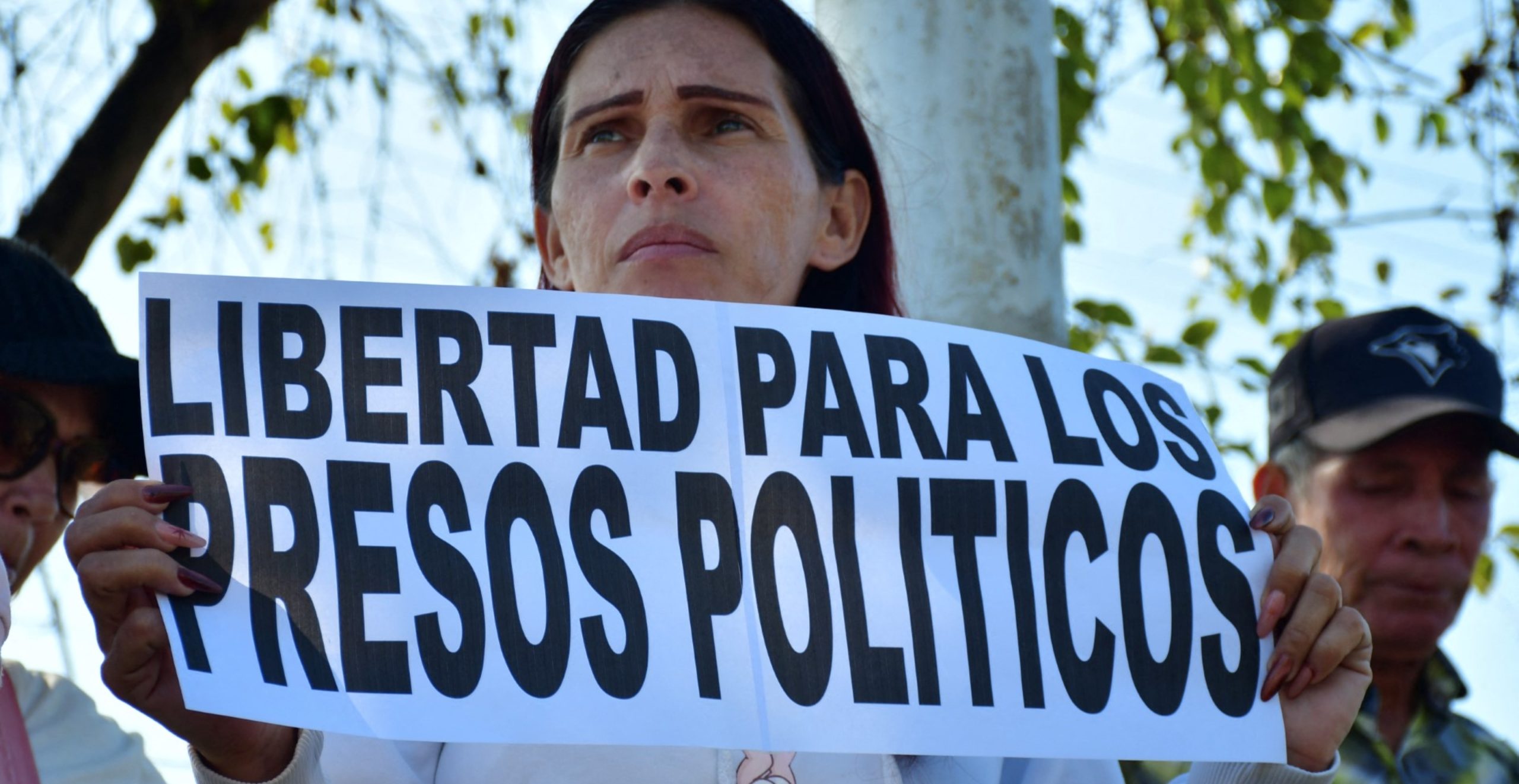
At least 80 political prisoners were released on Sunday across Venezuela, human rights group Foro Penal reported, as the broader process of detainee releases continues at a slow pace under the interim government.
Foro Penal’s director, Alfredo Romero, wrote on social media platform X that verified releases took place nationwide and that the figure could rise as more confirmations are completed.
Attorney Gonzalo Himiob, also from Foro Penal, said the excarcelations occurred during the early hours of the day and emphasized that the number is not yet final pending further verification.
The releases are part of a series of steps announced by Venezuela’s interim leader, Delcy Rodríguez, who took power after the capture of former President Nicolás Maduro in a U.S. military operation on Jan. 3, 2026. Rodríguez has pledged a significant number of liberations but has been criticized by opposition groups and rights organizations for the slow and nontransparent nature of the process.
So far, the Venezuelan government reports that 626 detainees have been freed since December, though independent counts by human rights groups suggest the number of actual political prisoner releases is lower and that many remain behind bars.
Families of those still detained have maintained vigils outside prisons, hopeful for further releases even as broader concerns about political imprisonment and due process persist.
-

 Central America5 days ago
Central America5 days agoMazatenango Carnival cancelled amid State of Siege in Guatemala
-

 International5 days ago
International5 days agoTrump to invite Venezuela’s interim president Delcy Rodríguez to Washington
-

 International5 days ago
International5 days agoMarkets rise as Trump halts Europe tariffs and floats Greenland agreement framework
-

 International5 days ago
International5 days agoVenezuela’s interim president predicts 37% increase in revenues for 2026
-

 International3 days ago
International3 days agoTrump-Era Defense Plan Prioritizes Border Security and Scales Back Global Commitments
-

 Central America3 days ago
Central America3 days agoGuatemala’s president rules out negotiations with inmates after prison riots
-

 International5 days ago
International5 days agoJapan reopens Kashiwazaki-Kariwa Plant despite public concerns
-

 Internacionales3 days ago
Internacionales3 days agoMajor winter storm threatens “catastrophic” ice and snow across much of the U.S.
-

 International5 days ago
International5 days agoFour minors killed in deadly clash between FARC dissidents in Colombia’s Amazon
-

 International3 days ago
International3 days agoBogotá and Quito Seek Dialogue After Tariffs and Power Cut Escalate Tensions
-

 International3 days ago
International3 days agoGuatemala considers sending high-risk gang members to military prisons
-

 International2 days ago
International2 days agoDelcy Rodríguez seeks political agreements after Maduro’s ouster
-

 International3 days ago
International3 days agoRights group says over 5,000 killed in Iran protests, mostly civilians
-

 International2 days ago
International2 days agoFederal immigration agents kill man in Minneapolis, sparking protests and outrage
-

 International11 hours ago
International11 hours agoHistoric snowstorm paralyzes Toronto after 60 centimeters of snow
-

 International11 hours ago
International11 hours agoSpain’s irregular migrant population rises to 840,000, study finds
-

 Central America12 hours ago
Central America12 hours agoGuatemala seizes over a ton of cocaine hidden in flour at Pacific port
-

 International12 hours ago
International12 hours agoRights group says nearly 6,000 killed in Iran protest crackdown
-

 International11 hours ago
International11 hours agoVenezuela frees at least 80 political prisoners, NGO says
-

 International12 hours ago
International12 hours agoEU launches new probe into X over AI-generated fake nude images
-

 International12 hours ago
International12 hours agoFrance debates ban on social media for children under 15
-

 International12 hours ago
International12 hours agoSevere winter storm grips U.S., leaves multiple dead as extreme cold persists

























